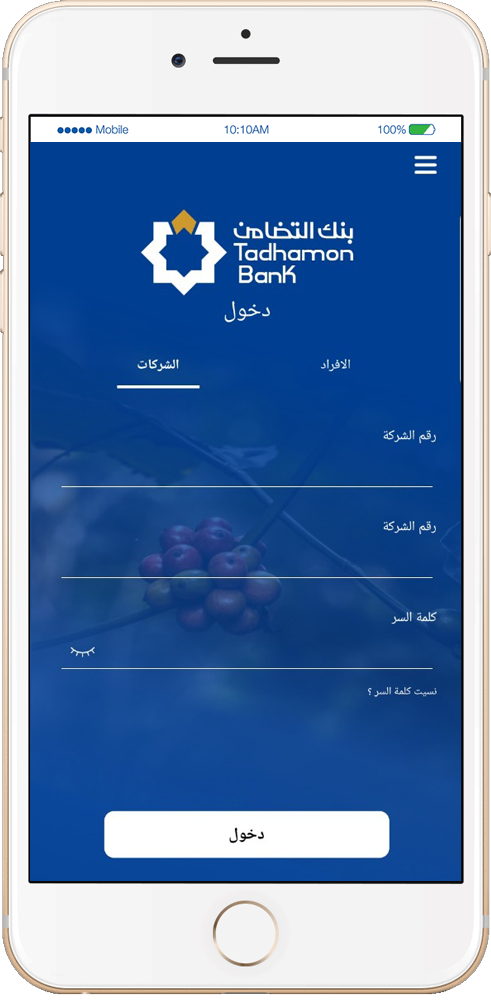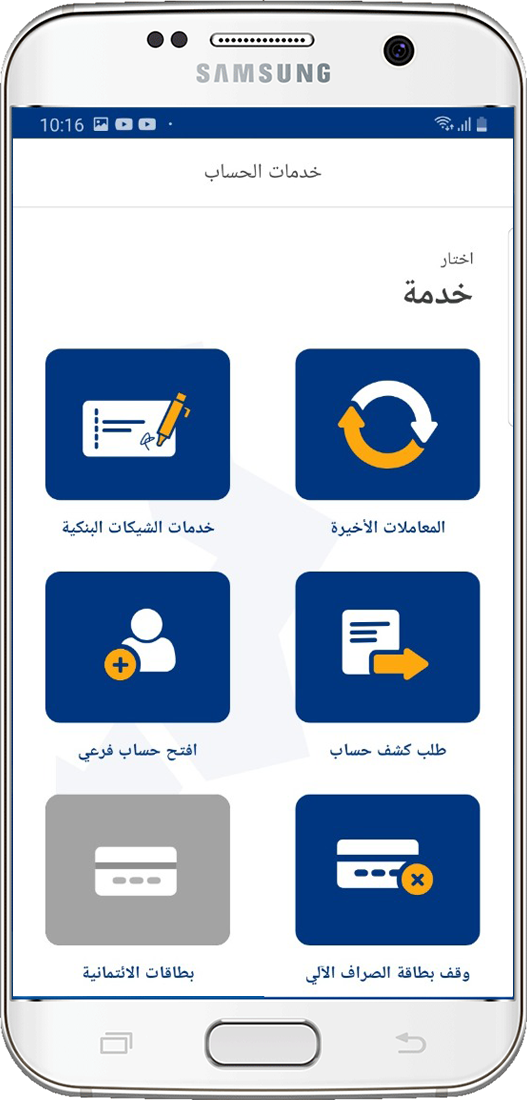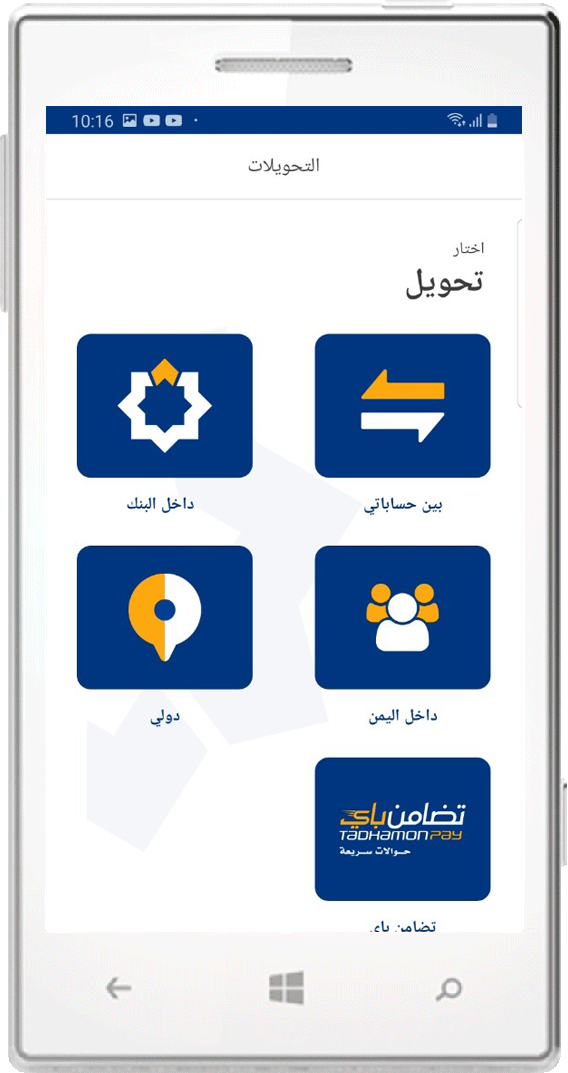About the Board
The Shari'ah Board regulation was adopted from the very beginning of the launch of Tadhamon Bank (TIIB). The Bank is committed to applying the provisions of the Islamic Shari'ah and observing its purposes in all transactions.
Introduction
The experience of banks and Islamic financial institutions is a relatively recent experience. This experience came after more than a century of the emergence of banks around the world with its modern sense following the industrial renaissance of the West. However, this proved a progress which greatly attributes to the ideological integrity on which this movement was founded. With the emergence of Islamic banks in the seventh decade of the last century; the twentieth century, the Shari’ah models have come into life coinciding with the emergence. Shari'ah Supervisory Boards have continued to keep pace with the growth and development of the movement of banks and Islamic financial institutions, and have practiced the role of Fatwa and Shari'ah supervision, with varying banking, legal and jurisprudence environments witnessed by this movement.
As a result of the stability and development of this experience, the need for new structures of Shari'ah Supervisory role emerged at the country, regional and/or international level.
No one can deny the contribution of the Shari'ah Supervisory Board to the stages of establishing these banks and institutions or their contribution to the legitimate establishment and development of their activities and operations in this field. The Shari'ah Supervisory Board’s contribution in this field is highly remarkable and crystal clear.
Establishment:
Since the establishment of the Bank, the General Assembly, which represents all shareholders of the Bank, has chosen a Shari'ah Board with prominent experts who have made a significant contribution to:
- Studying the bank's transactions and activities and issuing the necessary decisions thereon.
- Monitoring the decisions made on all the Bank's internal and external operations.
- Spreading up awareness of the Islamic economy inside and outside the Bank.
- Developing methods and means to implement various tasks.
Objectives:
- Achieving the Bank's commitment to the Shari'ah rules and principles.
- Developing Shari’ah approved formulas, contracts, and models, and ensuring that the design of systems, models, records, cards and others has been in accordance with the provisions and principles of Islamic Shari'ah.
- Enriching the financial transaction jurisprudence by enhancing known formulas, and developing new formulas and products, and developing research in the Islamic economy and Islamic banking.
- Obliging employees of the Bank and the Islamic financial institutions to abide by the Shari'ah provisions that must be observed within the Islamic banking activity.
- Reassuring the Bank's clients and others about the legitimacy of the activity carried out by Islamic banks and financial institutions.
- Assisting in rehabilitation and training of employees, and developing researches in the Islamic economy and Islamic banking.
Board Formation:
- The Fatwa and Shari'ah Supervisory Board (“Board”) shall be appointed by the Extraordinary General Assembly on the recommendation of the Board of Directors. It shall be independent of the Bank’s management, and no other entity at the Bank shall have any authority whatsoever over it.
- The Board consists of the elite of jurists and specialists not less than three members. All members are specialized in the jurisprudence of Islamic transactions and with knowledge of the Shariah provisions in the field of financial and banking transactions.
- The Board shall elect its chairman and may delegate any member to be an executor and secretariat who shall be responsible for following its work and decisions. It shall also choose a Shari'ah Compliance Controller from amongst its members or from other members or scholars with legal specialization and public banking culture in order to follow up the implementation of the Board's decisions and to respond to emergency inquiries.
Roles of the Fatwa and Shari'ah Supervisory Board:
- Reviewing the Bank's Memorandum of Association and Articles of Association, and requesting to be corrected in accordance with the provisions of the Islamic Sharia.
- Reviewing and approving contracts, agreements and processes in relation to the Bank's transactions; participating in the modification and development of the mentioned forms as required, as well as the contracts that the Bank intends to enter into, which does not have previously established forms, in order to ensure that such contracts, agreements, and transactions are not prohibited by Shariah.
- Presenting the Shari'ah judgment that the Board considers in within the Bank’s transactions referred to the Board by the Board of Directors, the Chief Executive Officer or the Shari'ah Compliance Controller.
- Providing any such consultations to the Board of Directors as it deems fit in any matter relating to the Bank's transactions.
- Verify that the Bank’s transactions and contracts are consistent with Shari'ah principles, through periodic reports submitted to it by the Shari'ah Compliance Controller on the progress of work and the integrity of the application of fatwas and decisions issued by the Board. In case of defects, the Board shall correct and adjusts the transactions, to make them Shari’ah-compliant.
- Representing the Bank in the legal fields at conferences, seminars and participating in Islamic banking meetings, to present the legal opinion when the economic stakeholders require so as much as possible.
- Ensuring compliance of the Bank’s executive management to present all transactions to the Fatwa and Shari'ah Supervisory Board, through the Shari'ah Compliance Controller.
- Submitting an annual report to the Board of Directors to be presented at the Board’s meeting in which the Bank’s annual budget shall be reviewed. The report shall provide a summary of cases and views expressed on the Bank’s transactions executed according to the applicable regulations and instructions. The report shall be reviewed with the Bank’s auditors at the Ordinary General Assembly.
- Supervising the compilation of fatwas issued by the Board, and, being the Shari’ah reference, approving any material to be published. The Bank shall comply with the Board’s decisions in this regard and may not violate any of them, except what is revoked or modified by the Board.
- Ensuring that profits are distributed and losses are charged in accordance with Shari'ah.
- Preparing training and awareness programs for employees of Shari'ah rules in the field of investment and banking transactions.
- Ensuring that the gains made from sources or in ways that contradict the provisions of Islamic Shariah are avoided and disposed of in charity purposes.
- Following up newly issued fatwas and publications regarding Islamic banking through participation in conferences and obtaining and benefiting from the various publications, especially those issued by the Supreme Supervisory Authority of the International Federation of Islamic Banks and the Accounting and Auditing Organization for Islamic Financial Institutions.
- Issuing necessary directives and Shari'ah regulations to guide the Bank's departments, obligating their employees to comply therewith and incorporating them in the work manual approved by the Bank's management.
- Calling for the General Assembly to convene in the event of the Board’s inability to perform its duties for any reason and lack of interaction with the Board of Directors with it.
- Holding lectures and seminars to raise awareness of the Shariah fundamentals and aspects regarding banking activities.
- Contributing to the preparation of orientation programs of Islamic banks in the mass media, whether audible or visual media.
- Holding public conferences and seminars to educate various segments of society about Islamic banks and the nature of their work and the characteristics of their activities.
Rules and Instructions of the Shariah Board:
- The entire Bank's sections and departments shall be bound by the decisions of the Shariah Board.
- The executive departments at all levels shall be responsible for implementing the decisions of the Shariah Board and responsible for the application thereof.
- All Bank’s products and services may not be provided to clients until they have been approved by the Shari'ah Board.
- It is prohibited to carry out any action that is contrary to any decision made by the Shari'ah Board.
- Any person who violates any of the decisions of the Sharī'ah Board, violates any existing legal procedure, or submits a product or service without permission from the Sharī'ah Board, shall be punished.
- The Sharī'ah Board shall monitor, control and execute the Bank's business from the Shariah perspective, through the Shari'ah Supervisory Department and whoever the Board deems fit.
- The Shariah Board shall develop formulas and contracts commensurate with Islamic Shari'ah rules and achieve its objectives in all Bank’s transactions, locally and internationally.
- By appropriate means, the Shariah Board shall adopt the role of raising awareness about Islamic banking and investment.
- To ensure the proper implementation of decisions issued by the Sharī'ah Board, the Board shall issue Shariah evidence for the Bank activities and its work procedures.
Meetings of the Board:
The Fatwa and Shari'ah Supervisory Board shall hold between 9 and 12 meetings per year. At these meetings, the following subjects shall be discussed at the Board’s agenda:
- Approving contracts, banking terms and forms at the form of financial or banking operations and amending them.
- Responding to inquiries regarding transactions according to the investment forms in force at the bank, as well as banking services; credit, currency trading, etc.
- Approving dividends made annually, proposing and developing banking products that are Shariah-compliant, including solutions to some issues related to liquidity, non-performing loans, investment and utilization of frozen funds due to the conditions of the country.
- Issuing decisions, fatwas, and recommendations aimed at controlling the dealings of the executive management in order to established banking business in accordance with the provisions and rules of Islamic Shariah at all levels of the Bank, supervisory and executive, including the following:
First: General Recommendations:
- The Fatwa and Shari'ah Supervisory Board emphasized the importance of scrutinizing the accuracy of banking transactions and not tolerating any process having documents that bear the name of the client. The client shall be informed of the corrective procedures in advance.
- Profits shall be calculated from the date of arrival of the goods and documents and the client shall be informed of this in conjunction with the Murabaha contract. The Bank shall have the right to amend the profit ratio before the date of the Murabaha contract if it is proved that the client delays and procrastinates in signing the contracts.
- The Board recommended that the executive management shall take the necessary measures regarding the agencies for receiving foreign goods.
- The Board also recommended the need to verify the compliance of all employees with the decisions and recommendations issued by the Board.
- The Board shall issue a range of fatwas and decisions on such inquiries raised by the Bank’s employees. The following is a set of decisions as examples to be cited by the Bank’s employees and clients:
Second:
The Board shall issue a set of fatwas and decisions on the matters raised by the employees of the Bank from inquiries. The following is a set of resolutions as samples for citation by the employees and customers of the bank alike
|
Subject / Inquiry |
The decision of the Fatwa and Shari'ah Supervisory Board |
|
Opening Murabaha credit with the initial invoice which is in the client's name |
If the other documents, including the invoice of sale and the bill of lading in the name of the Bank, it is allowed to proceed the procedures, where the initial invoice is a quotation. But the main invoice is the basis of sale and shall be in the name of the Bank. The credit letter shall be opened in the name of the Bank. |
|
Method of Profit Calculations |
The Fatwa and Shari'ah Supervisory Board approved the dividend distribution mechanism. It also recommended that the Bank's management shall notify depositors to pay zakat for themselves, and shall notify all the Bank’s subsidiaries, domestic or international branches, to pay their zakat as financially and administratively independent companies.
|
|
Change to a Murabaha bill arrived in the name of client |
The department shall assign one of the Bank’s employees to receive the goods as confirmation of the possession issue, with the necessity to complete the original invoice in the name of the Bank. |
|
All the letters of credit arrived in the name of client not the Bank |
Transformation of Murabaha credit to self credit, as it is not valid to conduct Murabaha credit if the bill of lading is in the name of the client.. /..
|
|
Client’s representative received and unloaded the goods in the client's warehouses without the Bank's representative receiving them from the port. |
Since the goods are not handled in the common Shariah way, the Bank may not bear the mistakes of others, and has the right to deduct the value from the client's account in addition to the handling fees as the Bank deems appropriate. |
|
Final invoice mismatches quotations in some executed transactions |
It should be relied on the final invoice in all commercial transactions, provided that the sales invoice includes the type and value of the goods. Discrepancy in quotation may not be considered, indeed, what shall be considered is the price that is recorded in the final invoice on which Murabaha is conducted. |
|
Implementation of Murabaha credit for a client on installments |
The value shall be deducted from the client's account for the received payment, and it may not be financed by Murabaha. As for the remaining payments that have not arrived so far, they shall be executed in Murabaha according to the given procedures. |
Please visit the nearest branch of Tadhamon Bank or call [ 8001010 ]






